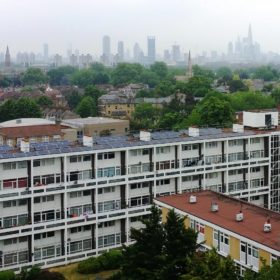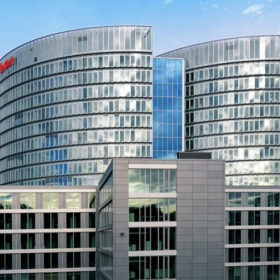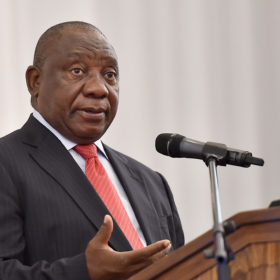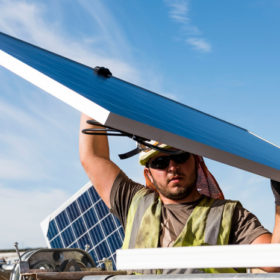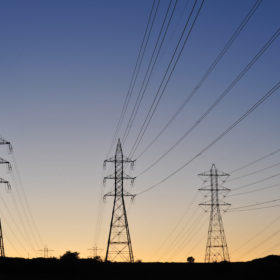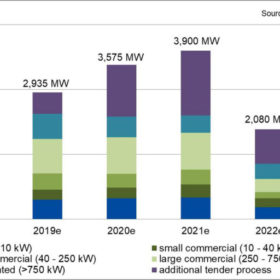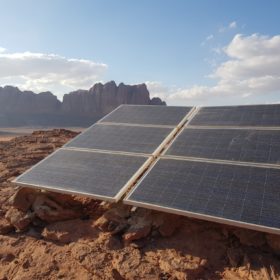Cambodia’s 100 MW National Solar Park project moves forward
The Asian Development Bank, which is backing the plant, is seeking project consultants. If built, the solar park would improve the country’s limited power supply and bring technical benefits to the national grid.
EDF helps Londoners share solar power using blockchain
The CommUNITY project is being realized outside the U.K. regulatory framework, which does not permit power trading between electricity customers.
Slovakian utility ZSE launches virtual battery for residential PV
The service, costing €2 per month, is for residential customers that use PV products provided by the power company. The system is provided by E.ON group – a shareholder in the Slovak utility – and has already been launched in Germany, Czechia and Italy.
South African renewables may be boosted by plan to privatize utility
President Cyril Ramaphosa has announced a plan to rescue state-owned power company Eskom by separating it into three units. According to consultants Frost & Sullivan, although that may not be enough to completely address the utility’s financial crisis it may further encourage investment in renewables.
Financial backing for study of grid effects in Australia’s booming distributed generation market
The Australian Renewable Energy Agency has awarded AU$9.6 million in grants for five projects and seven studies into the role of distributed generation assets on the grid – and how to expand their penetration.
Super-grids vs prosumer states: storage may decide the battle
Indra Overland, head of the Center for Energy Research at the Norwegian Institute for International Affairs, explains how the world’s future energy landscape may include pan-regional super-grids. However, prosumer states seeking energy independence could also be in the mix. According to Overland, the two developments will go hand in hand and the balance between them will be determined by the competitiveness of storage technologies.
Germany to install more than 10 GW of PV before 2022 contraction
Extraordinary PV tenders by the federal government will provide for more growth. Market research company EuPD Research expects newly installed capacity of 4 GW in 2021. After that, however, the market could see a sharp reduction, after the 52 GW cap for solar subsidies is reached.
E.on’s acquisition of Innogy would create customer energy data monopoly, claims rival utility
The planned acquisition of RWE subsidiary Innogy’s sales and network business, would make E.on the largest electricity supplier to two-thirds of Germany with a 70% market share in its distribution network. That is the finding of analysis conducted by consulting firm LBD on behalf of rival power firm Lichtblick.
Tokyo Gas invests further in solar and creates JV for storage
The acquisition of a 4.8 MW solar plant in the Kyoto prefecture and creation of a joint venture with Japanese storage specialist Exergy are part of the group’s 2020 plan to diversify its business into renewables and acquire 1 GW of capacity in them.
The weekend read: The untapped potential of the MENA region
The region’s climate, developing economies and demographic growth are driving increased electricity demand in the Middle East and North Africa. However, as a hub of conventional energy supply, the region has been slow to embrace PV. To capture more of the value chain and deliver the full potential of solar, there are increasing calls for distributed generation deployment to play a bigger role.

